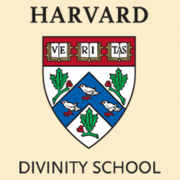
As the fall semester has progressed, the Harvard Divinity School community has continued to reflect in a variety of ways about the tragic events of September 11, and about the aftermath within the United States and abroad.
On October 24, 2001, in Andover Hall's Sperry Room, a public lecture entitled "The Question of Faith After September 11" featured E.J. Dionne, columnist for The Washington Post and a fellow of the Brookings Institution. Dionne highlighted the many faces of faith evident on September 11 and in the days following.
"At the very same time that so many Americans saw this tragedy rooted in perverse religious impulse, our own response was thoroughly religious," he said. He stressed, however, that faith cannot be reduced to its uses and misuses. "Faith is more credible when it insists on aspirations beyond those of our own political movements or communities or nations. The prayers do not express certainty that God is on our side, only the hope that because we try to seek justice and mercy ourselves, that might prove to be true."
Dionne pointed out that the events of September 11 "took place when our nation was engaged in a debate over the proper relationship between faith and government," largely caused by President Bush's institution of a faith-based initiatives office. "Few events more powerfully underscored the relationship between the sacred and the civic than the public response to September 11," he said. "Prayer and meditation, along with acts of generosity and mercy, partook of both the sacred and the civic realms. Americans discussed the urgency of religious toleration and how religion can unite or divide communities."
In the face of American military action in Afghanistan, Dionne said he wanted to make a special case for the right of American pacifists to be heard, while at the same time arguing from his point of view that they are wrong: "Bin Laden's world does not allow for pacifists; ours does."
He concluded that he has seen "one great good which might arise from the ashes of the World Trade Center. "There is a new spirit of seriousness and reflection," he said. "We are grappling with injustices . . . and taking politics and the sacrifices of public servants more seriously. . . . Those who entered those burning and collapsing buildings were counter-cultural figures. They did not wait around rationally calculating their immediate, individual self-interest. They didn't call their broker. They acted on instinct and commitment. They put their lives and liberties in jeopardy to protect the lives and liberties of others. We shouldn't give up this new seriousness.''
In addition to this public event, a meeting was held on October 18 for HDS staff to hear key personnel from across Harvard University speak about stricter security procedures having to do with anthrax and other biological threats, and other medical and mental-health concerns. Also, a series of brown-bag lunch discussion sessions has been organized for faculty members and students; sessions to date have included presentations by Ronald Thiemann and Robert Orsi, and by David Lamberth and Ellen Aitken.
Meanwhile, J. Bryan Hehir, Chair of the Executive Committee of the Faculty of Divinity, and other HDS professors have continued to participate in forums at other Harvard schools and elsewhere. For example, Hehir and Leila Ahmed, Professor of Women's Studies in Religion, participated in an October 22 event at the Kennedy Library in Boston entitled "Promoting Religious Tolerance in the Face of Religiously Motivated Terrorism." That forum was co-sponsored by WBUR and The Boston Globe, and transcribed excerpts of the event will appear in the Globe.
